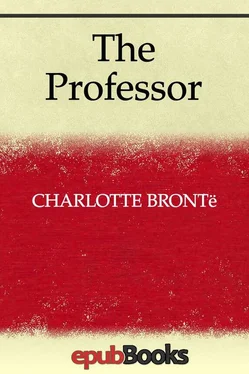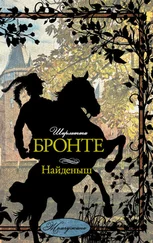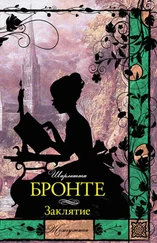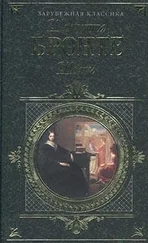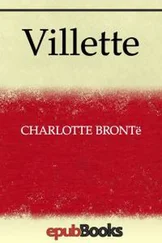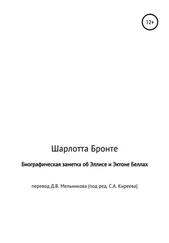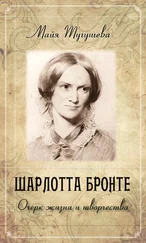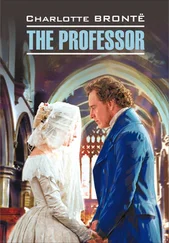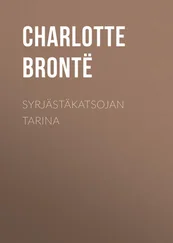Шарлотта Бронте - The Professor
Здесь есть возможность читать онлайн «Шарлотта Бронте - The Professor» — ознакомительный отрывок электронной книги совершенно бесплатно, а после прочтения отрывка купить полную версию. В некоторых случаях можно слушать аудио, скачать через торрент в формате fb2 и присутствует краткое содержание. Год выпуска: 2014, Издательство: epubBooks Classics, Жанр: Классическая проза, на английском языке. Описание произведения, (предисловие) а так же отзывы посетителей доступны на портале библиотеки ЛибКат.
- Название:The Professor
- Автор:
- Издательство:epubBooks Classics
- Жанр:
- Год:2014
- ISBN:нет данных
- Рейтинг книги:3 / 5. Голосов: 1
-
Избранное:Добавить в избранное
- Отзывы:
-
Ваша оценка:
- 60
- 1
- 2
- 3
- 4
- 5
The Professor: краткое содержание, описание и аннотация
Предлагаем к чтению аннотацию, описание, краткое содержание или предисловие (зависит от того, что написал сам автор книги «The Professor»). Если вы не нашли необходимую информацию о книге — напишите в комментариях, мы постараемся отыскать её.
The Professor — читать онлайн ознакомительный отрывок
Ниже представлен текст книги, разбитый по страницам. Система сохранения места последней прочитанной страницы, позволяет с удобством читать онлайн бесплатно книгу «The Professor», без необходимости каждый раз заново искать на чём Вы остановились. Поставьте закладку, и сможете в любой момент перейти на страницу, на которой закончили чтение.
Интервал:
Закладка:
"Not that I admire a head of that sort; it wants character and force; there's too much of the sen–si–tive (so he articulated it, curling his lip at the same time) in that mouth; besides, there is Aristocrat written on the brow and defined in the figure; I hate your aristocrats."
"You think, then, Mr. Hunsden, that patrician descent may be read in a distinctive cast of form and features?"
"Patrician descent be hanged! Who doubts that your lordlings may have their 'distinctive cast of form and features' as much as we―shire tradesmen have ours? But which is the best? Not theirs assuredly. As to their women, it is a little different: they cultivate beauty from childhood upwards, and may by care and training attain to a certain degree of excellence in that point, just like the oriental odalisques. Yet even this superiority is doubtful. Compare the figure in that frame with Mrs. Edward Crimsworth—which is the finer animal?"
I replied quietly: "Compare yourself and Mr. Edward Crimsworth, Mr Hunsden."
"Oh, Crimsworth is better filled up than I am, I know besides he has a straight nose, arched eyebrows, and all that; but these advantages—if they are advantages—he did not inherit from his mother, the patrician, but from his father, old Crimsworth, who, MY father says, was as veritable a ―shire blue–dyer as ever put indigo in a vat yet withal the handsomest man in the three Ridings. It is you, William, who are the aristocrat of your family, and you are not as fine a fellow as your plebeian brother by long chalk."
There was something in Mr. Hunsden's point–blank mode of speech which rather pleased me than otherwise because it set me at my ease. I continued the conversation with a degree of interest.
"How do you happen to know that I am Mr. Crimsworth's brother? I thought you and everybody else looked upon me only in the light of a poor clerk."
"Well, and so we do; and what are you but a poor clerk? You do Crimsworth's work, and he gives you wages—shabby wages they are, too."
I was silent. Hunsden's language now bordered on the impertinent, still his manner did not offend me in the least—it only piqued my curiosity; I wanted him to go on, which he did in a little while.
"This world is an absurd one," said he.
"Why so, Mr. Hunsden?"
"I wonder you should ask: you are yourself a strong proof of the absurdity I allude to."
I was determined he should explain himself of his own accord, without my pressing him so to do—so I resumed my silence.
"Is it your intention to become a tradesman?" he inquired presently.
"It was my serious intention three months ago."
"Humph! the more fool you—you look like a tradesman! What a practical business–like face you have!"
"My face is as the Lord made it, Mr. Hunsden."
"The Lord never made either your face or head for X― What good can your bumps of ideality, comparison, self–esteem, conscientiousness, do you here? But if you like Bigben Close, stay there; it's your own affair, not mine."
"Perhaps I have no choice."
"Well, I care nought about it—it will make little difference to me what you do or where you go; but I'm cool now—I want to dance again; and I see such a fine girl sitting in the corner of the sofa there by her mamma; see if I don't get her for a partner in a jiffy! There's Waddy—Sam Waddy making up to her; won't I cut him out?"
And Mr. Hunsden strode away. I watched him through the open folding–doors; he outstripped Waddy, applied for the hand of the fine girl, and led her off triumphant. She was a tall, well–made, full–formed, dashingly–dressed young woman, much in the style of Mrs. E. Crimsworth; Hunsden whirled her through the waltz with spirit; he kept at her side during the remainder of the evening, and I read in her animated and gratified countenance that he succeeded in making himself perfectly agreeable. The mamma too (a stout person in a turban—Mrs. Lupton by name) looked well pleased; prophetic visions probably flattered her inward eye. The Hunsdens were of an old stem; and scornful as Yorke (such was my late interlocutor's name) professed to be of the advantages of birth, in his secret heart he well knew and fully appreciated the distinction his ancient, if not high lineage conferred on him in a mushroom–place like X―, concerning whose inhabitants it was proverbially said, that not one in a thousand knew his own grandfather. Moreover the Hunsdens, once rich, were still independent; and report affirmed that Yorke bade fair, by his success in business, to restore to pristine prosperity the partially decayed fortunes of his house. These circumstances considered, Mrs. Lupton's broad face might well wear a smile of complacency as she contemplated the heir of Hunsden Wood occupied in paying assiduous court to her darling Sarah Martha. I, however, whose observations being less anxious, were likely to be more accurate, soon saw that the grounds for maternal self–congratulation were slight indeed; the gentleman appeared to me much more desirous of making, than susceptible of receiving an impression. I know not what it was in Mr. Hunsden that, as I watched him (I had nothing better to do), suggested to me, every now and then, the idea of a foreigner. In form and features he might be pronounced English, though even there one caught a dash of something Gallic; but he had no English shyness: he had learnt somewhere, somehow, the art of setting himself quite at his ease, and of allowing no insular timidity to intervene as a barrier between him and his convenience or pleasure. Refinement he did not affect, yet vulgar he could not be called; he was not odd—no quiz—yet he resembled no one else I had ever seen before; his general bearing intimated complete, sovereign satisfaction with himself; yet, at times, an indescribable shade passed like an eclipse over his countenance, and seemed to me like the sign of a sudden and strong inward doubt of himself, his words and actions an energetic discontent at his life or his social position, his future prospects or his mental attainments—I know not which; perhaps after all it might only be a bilious caprice.
Chapter IV.
No man likes to acknowledge that he has made a mistake in the choice of his profession, and every man, worthy of the name, will row long against wind and tide before he allows himself to cry out, "I am baffled!" and submits to be floated passively back to land. From the first week of my residence in X― I felt my occupation irksome. The thing itself—the work of copying and translating business–letters—was a dry and tedious task enough, but had that been all, I should long have borne with the nuisance; I am not of an impatient nature, and influenced by the double desire of getting my living and justifying to myself and others the resolution I had taken to become a tradesman, I should have endured in silence the rust and cramp of my best faculties; I should not have whispered, even inwardly, that I longed for liberty; I should have pent in every sigh by which my heart might have ventured to intimate its distress under the closeness, smoke, monotony and joyless tumult of Bigben Close, and its panting desire for freer and fresher scenes; I should have set up the image of Duty, the fetish of Perseverance, in my small bedroom at Mrs. King's lodgings, and they two should have been my household gods, from which my darling, my cherished–in–secret, Imagination, the tender and the mighty, should never, either by softness or strength, have severed me. But this was not all; the antipathy which had sprung up between myself and my employer striking deeper root and spreading denser shade daily, excluded me from every glimpse of the sunshine of life; and I began to feel like a plant growing in humid darkness out of the slimy walls of a well.
Antipathy is the only word which can express the feeling Edward Crimsworth had for me—a feeling, in a great measure, involuntary, and which was liable to be excited by every, the most trifling movement, look, or word of mine. My southern accent annoyed him; the degree of education evinced in my language irritated him; my punctuality, industry, and accuracy, fixed his dislike, and gave it the high flavour and poignant relish of envy; he feared that I too should one day make a successful tradesman. Had I been in anything inferior to him, he would not have hated me so thoroughly, but I knew all that he knew, and, what was worse, he suspected that I kept the padlock of silence on mental wealth in which he was no sharer. If he could have once placed me in a ridiculous or mortifying position, he would have forgiven me much, but I was guarded by three faculties—Caution, Tact, Observation; and prowling and prying as was Edward's malignity, it could never baffle the lynx–eyes of these, my natural sentinels. Day by day did his malice watch my tact, hoping it would sleep, and prepared to steal snake–like on its slumber; but tact, if it be genuine, never sleeps.
Читать дальшеИнтервал:
Закладка:
Похожие книги на «The Professor»
Представляем Вашему вниманию похожие книги на «The Professor» списком для выбора. Мы отобрали схожую по названию и смыслу литературу в надежде предоставить читателям больше вариантов отыскать новые, интересные, ещё непрочитанные произведения.
Обсуждение, отзывы о книге «The Professor» и просто собственные мнения читателей. Оставьте ваши комментарии, напишите, что Вы думаете о произведении, его смысле или главных героях. Укажите что конкретно понравилось, а что нет, и почему Вы так считаете.
